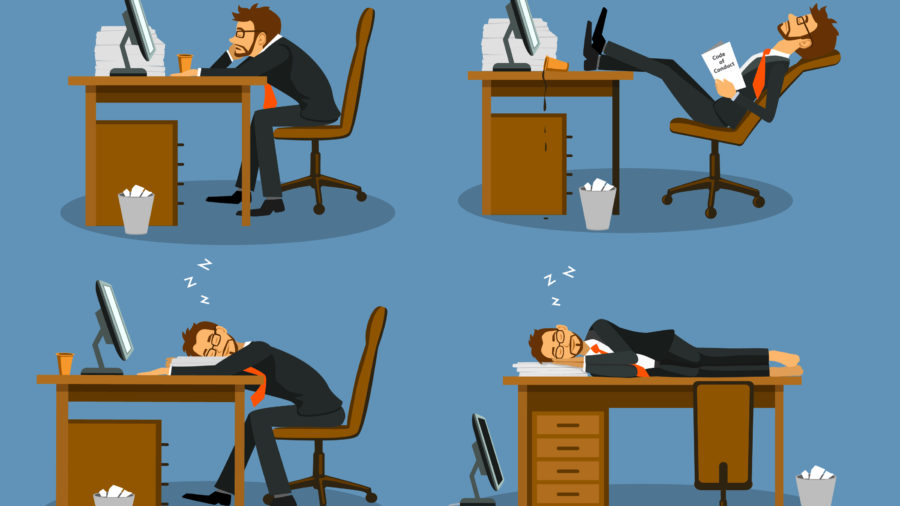
Welcome to WinnerTrick.com — the best source for success and personal development articles, motivational quotes, and tips to live your best life.
contact@winnertrick.com
Being labeled—or labeling yourself—as lazy often stems from not fully understanding the root cause behind why you’re putting things off, even when you know deep down they’re important. It can feel like you’re locked in a quiet war with yourself: one side urging action, the other tugging you back into passivity. You know what needs to be done, and you might even want to do it, but in the moment, that drive feels miles away.
I remember my early twenties all too well. That phase of life came packed with procrastination and plenty of reasons to do nothing. And as a result, I didn’t...
…handle my schoolwork properly, which led to panicked cramming sessions just days before big exams.
…put effort into fitness or cooking healthy meals, and I paid the price by gaining over 30 pounds while watching my energy levels decline.
…chase personal growth or my bigger dreams; I kept telling myself “someday,” and let those ambitions collect dust.
Fast forward a decade later, and yes, I still enjoy being unproductive from time to time—who doesn’t? But I’ve learned how to give laziness a healthier place in my life, so it no longer controls my days or derails my progress.
What made the shift possible? Ten practical habits that gradually helped me take back control. They didn’t eliminate laziness completely (and they shouldn’t—it has its place), but they allowed me to work smarter, move forward, and still enjoy downtime without guilt.

The knee-jerk reaction when we’re feeling unproductive is often to criticize ourselves—sometimes harshly. We think being hard on ourselves will spark action. Occasionally it might. But more often than not, it does the opposite. The more guilt and failure you pile on, the less motivated you feel to even try.
Rather than spiral into a shame-loop, learn to redirect that moment. Acknowledge the laziness, but don’t let it define you. Use it as a gentle signal instead of a verdict. When I catch myself sliding into self-judgment, I consciously shift focus. I remind myself: I’m not failing; I’m just stuck—and stuck is fixable.
Instead of beating yourself up, offer yourself a soft nudge in a better direction. Guilt rarely builds momentum. Encouragement does.
Starting is often the most intimidating part. Our brains are excellent at building mountains out of even the smallest tasks. So, flip the script: make the start so laughably easy that resistance has no chance.
Need to exercise? Just lace up your sneakers and walk for 3 minutes. Dreading the dishes? Tell yourself you’ll do five. Putting off a big writing task? Commit to writing for just 10 minutes. It’s not about the amount; it’s about breaking inertia.
Personally, I’ve used this technique every single day. When I was creating a course recently, my only goal was to write one page a day. Not ten. Just one. Once I started, I usually kept going—and some days, I ended up writing entire sections.
The trick is not to aim for perfection or productivity fireworks. The trick is simply to begin. And once you begin, you’re no longer stuck.

One of the most powerful ways to combat laziness and build a day you can feel proud of is by handling something important first thing in the morning. Before the noise of daily distractions takes over, before the brain gets a chance to negotiate a way out, tackle a small—but meaningful—part of something that truly matters in the long run.
Not the inbox. Not checking messages or scanning social media. But a small chunk of what will make you feel accomplished by the end of the day.
Break that goal down into manageable bits. If your larger goal is to finish a portfolio, then the task for this morning might be editing just one draft. If your aim is fitness, maybe it’s just ten push-ups or a quick five-minute stretch.
Get that early win. It might only take ten minutes, but it sets the tone for your whole day—one where you’ve already done something that matters before breakfast.
Pushing yourself for long hours without breaks doesn’t usually work—especially when you’re already struggling with low motivation. Instead, break your day into smaller, focused sessions followed by short breaks.
Try this approach: tell yourself, “I’ll work on this task for 20 minutes, then I can scroll, snack, or chill for 10.” You’re not avoiding laziness—you’re scheduling it in a way that won’t sabotage your progress.
The mental trick here is that work no longer feels endless. There’s a break in sight. And ironically, knowing you can relax makes you more likely to stay engaged when it’s time to focus.
As you build stamina, you might shift to longer work sessions—say 40 minutes—and keep the same brief recovery window. To stay on track, use a timer app or even a good old-fashioned kitchen timer to keep things honest.
You sit down to work. Ten minutes later, you’re on your phone. Scrolling, refreshing, clicking. Sound familiar?
Even with the best intentions, focus can’t survive in an environment full of tempting escape routes. So identify what you tend to run to when you’re avoiding work—and block it, hide it, or move it out of reach.
For me, that meant silencing my phone and physically placing it across the room. Just having to stand up and walk to it was enough to cut 95% of my impulse distractions.
Try these:
If video games are your escape, unplug the controller and stash it out of sight.
If websites are the issue, install browser blockers like StayFocusd or Cold Turkey.
If the TV is your siren song, unplug it. Better yet, hide the power cord.
The more friction you place between you and the distraction, the less likely you are to slip. It’s not about willpower. It’s about creating a friction-free path to productivity—and a friction-filled one to procrastination.

Motivation isn't just about willpower—it’s about emotion. And one way to rekindle it is by looking ahead.
Sit with yourself. No distractions. Close your eyes and ask, with honesty: What happens if I keep going like this for the next five years?
Let the answer come. Let it sting if it has to. Think about the health consequences, the missed dreams, the regrets.
Then switch gears and ask: What does life look like if I start now? Even in just one year—how would things change? What would I gain? Who else might benefit?
Visualize it as clearly as you can. Motivation comes when we feel the cost of inaction and the joy of success—not just intellectually, but emotionally. So lean into both visions. Use them to propel you into movement.
If your to-do list feels overwhelming, that in itself can trigger paralysis. One reason we feel lazy is because our mental bandwidth is drained trying to juggle too many things.
So here’s a simple practice I use:
Ask yourself: If I only had two hours of work time today, what would I focus on?
Then ask: If I had just one hour of free time, how would I spend it to truly enjoy it?
These questions force clarity. They highlight what truly matters and help you declutter the unnecessary noise. When you know what counts, it becomes easier to say no to the rest—and that, in turn, reduces mental fatigue and resistance.
One major reason people stay stuck in laziness is fear. Specifically, the fear of messing up. It whispers: What if you try and fail again? What if you're not good enough? And that thought alone can send you straight back to the couch or scrolling your feed.
But here's the truth: everyone stumbles.
Every person who's ever done something meaningful has had moments of backtracking, quitting, and trying again. So instead of letting those moments of failure turn into a new excuse for more procrastination, make them a part of your system.
When you trip up, pause and ask yourself:
What is one small lesson I can take away from this?
If my best friend were in my shoes, what would I say to help them get back up?
This mental reset reframes failure into something valuable. It becomes fuel for progress—not a full stop.
Progress isn’t linear. It zigzags. And the people who get ahead aren’t the ones who never fail—they’re the ones who know how to rise after they do.

Energy is contagious.
If the people you spend time with are constantly stuck in a pattern of avoidance, complaining, or putting things off… it's only natural that some of that will rub off on you. Without even noticing, you might start lowering your standards to match theirs.
But the reverse is also true. When you surround yourself with motivated, inspired, and active people—even digitally through books, podcasts, YouTube videos, or audiobooks—you start to rise with them.
Look at your current input. Who are the top 5 people or sources of content you spend time with weekly? Are they helping you grow, or subtly keeping you stuck?
Make the conscious choice to tune into content or conversations that fire you up, not drain you. Fill your ears and your screen with people who are already doing what you want to do. Let their wins be your wind.
Here’s something many people don’t realize: laziness isn’t the enemy. Unstructured, unearned, aimless laziness is.
But taking breaks—real, intentional breaks—where you give yourself permission to rest, recharge, and enjoy… that’s essential.
If you’ve worked hard and earned it, guilt-free lazy time can be one of the most powerful motivators. It helps you avoid burnout, keeps your brain fresh, and gives you something to look forward to.
The trick is to make your downtime feel valuable, not wasted. Don’t just default to watching something “meh” because it’s easy. Choose a favorite movie, read a novel, go for a walk, or even just daydream in the sun.
When you give yourself permission to fully enjoy rest, without guilt, something shifts. You actually become more excited to return to work later—because your brain feels rewarded, not robbed.
And the funny thing? People who plan their lazy time often get more done than those who constantly avoid tasks with distraction. Why? Because they know there's space for everything: effort and ease.
Try it for yourself.
Start with one small change from this list. Whether it’s putting your phone in another room for 30 minutes or starting your day with one meaningful task. The path away from laziness isn’t a single leap—it’s a series of tiny, thoughtful steps.
Just make the next one today.
Make sure you enter all the required information, indicated by an asterisk (*). HTML code is not allowed.